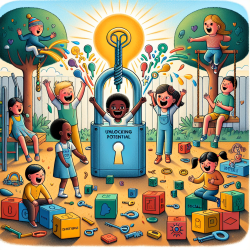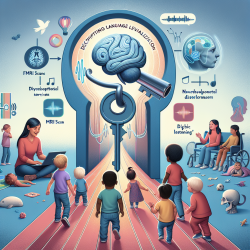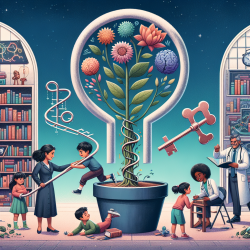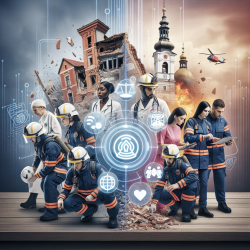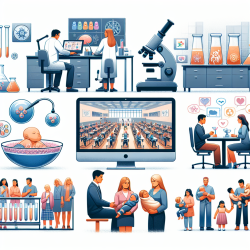The COVID-19 pandemic has been a catalyst for change in education, pushing K-12 educators to adapt rapidly to online teaching. While this transition presented numerous challenges, it also opened doors to new opportunities for growth and innovation. By examining the experiences of teachers during the early stages of the pandemic, we can glean valuable insights to improve online teaching practices and prepare for future emergencies.
Understanding the Challenges Faced by Educators
The research article "Examining K-12 teachers’ feelings, experiences, and perspectives regarding online teaching during the early stage of the COVID-19 pandemic" highlights several key challenges faced by educators:
- Lack of Student Engagement: Teachers reported difficulties in maintaining student participation and engagement, often due to a lack of parental support.
- Technology Access: The digital divide was evident as many students lacked access to necessary technology and internet connectivity.
- Concerns for Student Well-being: Educators were worried about students' physical, mental, and social well-being in unstable home environments.
- No Face-to-Face Interaction: The absence of in-person interactions hindered teachers' ability to connect with students on a personal level.
- Work-Life Balance: Teachers struggled with balancing heavy workloads and personal responsibilities while adapting to new technologies.
Strategies for Enhancing Online Teaching
The study also identified strategies that educators employed to navigate these challenges effectively:
- Learner-Centered Approaches: Many teachers adopted learner-centered strategies such as project-based learning and hands-on activities to engage students actively.
- Diverse Technology Tools: Educators utilized various digital tools like video conferencing platforms (Zoom, Google Meet) and learning management systems (Google Classroom) to facilitate remote learning.
- Synchronous Meetings: Regular virtual meetings helped maintain a sense of community and connection among students and teachers.
Preparing for Future Emergencies
The research emphasizes the need for comprehensive preparation to handle future educational disruptions effectively. Key recommendations include:
- Professional Development: Ongoing training in online teaching methodologies is crucial for equipping teachers with the skills needed for effective remote instruction.
- Technology Access and Training: Ensuring equitable access to technology for all students and providing training on digital tools is essential for bridging the digital divide.
- Action Plans and Communication: Developing clear action plans and communication strategies will help schools respond swiftly and cohesively during emergencies.
The "New Normal" in Education
The concept of a "new normal" post-COVID-19 suggests lasting changes in educational practices. Teachers anticipate more integration of technology into daily instruction, increased emphasis on hygiene and social distancing, smaller class sizes, and flexible school schedules. Some educators express optimism about leveraging online learning's benefits to create more personalized and autonomous learning experiences for students.
As we move forward, it is crucial for educators to continue exploring innovative teaching strategies and remain adaptable to changing circumstances. By embracing these lessons learned during the pandemic, we can transform challenges into opportunities for growth in education.
To read the original research paper, please follow this link: Examining K-12 teachers’ feelings, experiences, and perspectives regarding online teaching during the early stage of the COVID-19 pandemic.




